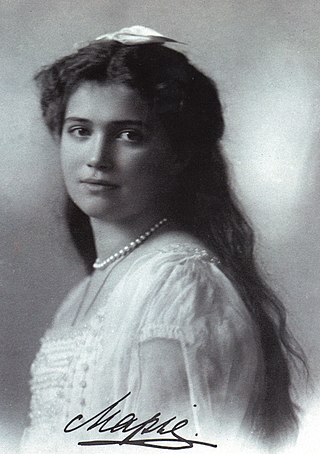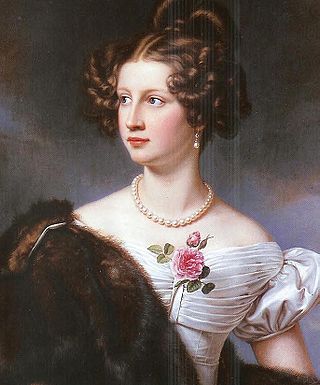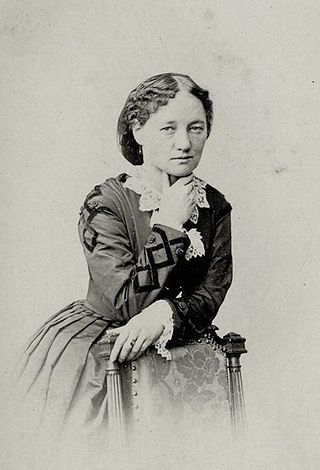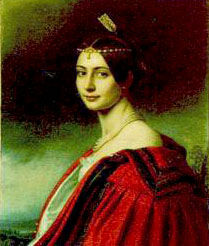Biography
Sofia was borth the eldest daughter of the statesman and public figure Ivan Feodorvich Tyutchev (1846-1909), the son of poet Fyodor Tyutchev, and Olga Nikolaevna (nee Putyata, 1840-1920). [3] She was born in Smolensk, where her father seved in the Chamber of Criminal and Civil courts, [4] and then as an associate prosecutor in the Smolensk District Court. In 1872, Ivan Tyuthcev was appointed a member of the Moscow District Court, and in 1875, he was elected magistrate of the Dmitrov district of Moscow province. [5] From that time on, the family lived permanently in Muranovo.
She received an education at home. In 1896, Sofia Tyutcheva was made a maid of honour to Empress Alexandra Feodorovna. Distinguised by her active and hardworking character, in her free time from duties, she worked in various charitable institutions under the patronage of Grand Duchess Elizabeth Feodorovna. [1] During the Russo-Japanese War, she was in charge of accounting for a warehouse at the Special Committee for Assistance to Soldiers in the Grand Kremlin Palace, where donationns for the welfare of the soldiers were collected. [6] She also worked for the Society for the Care of Children of Poor Parents. [6]
In January of 1907, Sofia Ivanovna was appointed as a governess for the daughters of Nikolai II and held this position unti June 1912. [7] [8] She would later record her memories from this time with the Imperial family in 1945, which were published in 1997.
According to contemporaries who knew her personally, she was direct, honest, and democratic. She knew how to endure all surprises of fate and stand firmly on her feet. She combined great intelligence, independance of judgement, dedication, and love for children. [6] One contemporary wrote: [9]
"She did not obey the demands of her elders, she led her own line with the royal children. It is possible that her educational direction was more rational, but it was not her taste, and she persisted, like all the Tyutchevs, she was stubborn and persistent."
In 1912, Tyutcheva was fired. [10] According to her, this was because she had seen Grigori Rasputin, enter the room of the grand duchesses without permission, where they were dressed in nightgowns, and bless them for bed, which she then reported to the Emperor. Lili Dehn, friend of the Empress, describes this differently: [11]
"Mademoiselle Tyutcheva was never the governess of Their Highnesses and could not see Rasputin blessing them, since this did not happen. The Emperor would not have allowed this to happen even if Her Majesty had wished it. Well, the Empress did not at all believe that such a procedure was necessary to save the souls of her daughters. And Tyutcheva became a victim of her own arrogance and envy."
According to Dehn, Sofia Tyutcheva had an unyielding, quarrelsome character, and promoted rumours to justify her dismissal. [11] Ultimately, her constant dissatisfaction led to the Empress dismissing her. Upon her dismissal, the Empress gifted Tyutcheva a hyacinth brooch with diamonds, and invited her to court whenever she was in Saint Petersburg. [6] At this time, the faction against Rasputin was in full swing, so this claim, whether fictitous or not, was circulated with entusiasim.
After her dismissal, Sofia Ivanovna returned to Muranovo where she was involved in the local community. She was godmother of many peasant children, and financially supported families in trouble. [1] She was also involved in raising peasant children who studied atthe Muranovo school founded by her father. In 1920, throught the efforts of her brother, Nikolai Ivanovich Tyutchev, a museum was opened in the estate house. Sofia Ivanovna took part in the analysis of the extensive family archive and the composition of files. She tended to the park and garden, having almost lost her sight in old age. Sofia Ivanovna was a deeply religious person. Until the closure of the Church of the Saviour Not Made by Hands in Muranova, she took an active part in parish life. From the memoirs of her nephew N.V. Pigarev, it is known that "in the post-revolutionary years, naturally, there were no cleaners in the church. The order in the temple and all the cleaning was done by Aunt Sofia Ivanovna." [2]
Sofia Ivanovna Tyutcheva died in Muranova, on 31 August 1957. She was buried in the village of Rakhmanovo, near Muranovo. [12]

Grigori Yefimovich Rasputin was a Russian mystic and holy man. He is best known for having befriended the imperial family of Nicholas II, the last Emperor of Russia, through whom he gained considerable influence in the final years of the Russian Empire.

Maria Feodorovna, known before her marriage as Princess Dagmar of Denmark, was Empress of Russia from 1881 to 1894 as the wife of Emperor Alexander III. She was the fourth child and second daughter of Christian IX of Denmark and Louise of Hesse-Kassel. Maria’s eldest son, Nicholas, was the last Emperor of Russia, ruling from 1 November 1894 until his abdication on 15 March 1917. Maria lived for 10 years after Bolshevik functionaries killed Nicholas and his immediate family in 1918.

Alexandra Feodorovna, Princess Alix of Hesse and by Rhine at birth, was the last Empress of Russia as the consort of Emperor Nicholas II from their marriage on 26 November [O.S. 14 November] 1894 until his forced abdication on 15 March [O.S. 2 March] 1917. A favourite granddaughter of Queen Victoria of the United Kingdom, she was, like her grandmother, one of the most famous royal carriers of haemophilia and bore a haemophiliac heir, Alexei Nikolaevich, Tsarevich of Russia. Her reputation for encouraging her husband's resistance to the surrender of autocratic authority and her known faith in the Russian mystic Grigori Rasputin severely damaged her popularity and that of the Romanov monarchy in its final years. She and her immediate family were all murdered while in Bolshevik captivity in 1918, during the Russian Revolution. In 2000, the Russian Orthodox Church canonized her as Saint Alexandra the Passion Bearer.

Grand Duchess Tatiana Nikolaevna of Russia was the second daughter of Tsar Nicholas II, the last monarch of Russia, and of Tsarina Alexandra. She was born at Peterhof Palace, near Saint Petersburg.

Grand Duchess Anastasia Nikolaevna of Russia was the youngest daughter of Tsar Nicholas II, the last sovereign of Imperial Russia, and his wife, Tsarina Alexandra Feodorovna.

Fyodor Ivanovich Tyutchev was a Russian poet and diplomat.

Grand Duchess Maria Nikolaevna of Russia was the third daughter of Tsar Nicholas II of Russia and Tsarina Alexandra Feodorovna. Her murder following the Russian Revolution of 1917 resulted in her canonization as a passion bearer by the Russian Orthodox Church.

Countess Amalie Maximilianovna Adlerberg was an illegitimate daughter of Duchess Therese of Mecklenburg-Strelitz, fathered by Bavarian diplomat Maximilian-Emmanuel Graf von und zu Lerchenfeld auf Köfering und Schönberg (1772–1809). Duchess Therese had had an affair with the Bavarian diplomat while her husband Karl Alexander, 5th Prince of Thurn and Taxis was in Paris for several years at the invitation of Napoleon Bonaparte. Amalie's mother was an aunt of Empress Alexandra Feodorovna, wife of Tsar Nicholas I.
Yulia Alexandrovna von Dehn, known as Lili Dehn, or Lili von Dehn, was the wife of a Russian naval officer and a friend to Empress Alexandra Feodorovna.

Grand Duchess Olga Nikolaevna of Russia was the eldest child of the last Tsar of the Russian Empire, Emperor Nicholas II, and of Empress Alexandra of Russia.

Alexandra Osipovna Smirnova (Russian: Александра Осиповна Смирнова, née Rosset, known also as Smirnova-Rosset, Russian: Смирнова-Россет; was a Russian Imperial court lady-in-waiting who served first widow Empress Maria Fyodorovna, then, after her death in 1828, Empress Alexandra Fyodorovna. Alexandra Rosset, was an elitist Saint Petersburg salon hostess and a friend of Alexander Pushkin, Vasily Zhukovsky, Pyotr Vyazemsky, Nikolai Gogol and Mikhail Lermontov. She is best remembered for her memoirs, unusually frank, occasionally caustic, and, as it was argued decades later, not necessarily accurate.

Alexandra Sergeyevna Albedinskaya was a Russian noble and courtier.

Sophia Ivanovna Smirnova was a Russian writer, novelist and memoirist.

Eugenia Gertsyk was a noted Russian translator and literary figure from the Silver Age. Since the demise of the USSR, she has become noted for her memoirs and extensive letter correspondence, which provides a unique glimpse into the interwar years of Russia's past.

Anna Feodorovna Tyutcheva was a Russian Empire courtier, slavophile and memoirist.

Countess Emilia Eleanor Sophie Louise Christina Bothmer married twice, first to Active State Councillor Alexander Peterson, and secondly to poet Fyodor Tyutchev.

Daria Fedorovna Tyutcheva was the second daughter of the poet Fyodor Tyutchev from his first marriage with Eleonor Bothmer.

Ekaterina Fedorovna Tyutcheva (1835–1882) was a maid of honour of Empress Maria Alexandrovna, writer, and third daughter of the poet Fyodor Tyutchev from his first marriage to Eleanor Peterson.

Baroness Ernestine von Pfeffel (1810–1894), was the second wife of the poet Fyodor Tyutchev.

Princess Sofia Andreyevna Gagarina, née Dashkova was a maid of honour, later state lady, and wife of the Chief Chamberlain of Prince Grigory Gagarin.



















